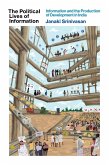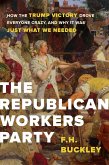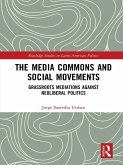The book deals with the relationship of the citizen with his (her) government. Concentrates on those aspects that are troublesome, as indicated by the citizens' opinions and complaints, and on those that are critical for the improvement and stability of society. These include: Family structure, education, productivity and innovation, designation of people for public office, political parties, the military, the Constitution and the citizen. Most opportunities for government improvement are associated with the clear definition of its responsibilities, the introduction of new ways to choose candidates for public office and their removal when deemed necessary, and to organize the common citizens, to take advantage of collective intelligence. This last action is now possible by the use of modern communication technologies. Details on the introduction of these actions are presented throughout the book. They are meant to be food for thought, subjects of discussion and, hopefully, as stimulus for political action. The book is dedicated to the common citizen, who is invited to learn and analyze his particular government, to compare it with those of other nations and to use his basic political power to fix whatever needs fixing. It could be useful for students interested in what to look for in their analysis of government and its effects on the society it serves.
Dieser Download kann aus rechtlichen Gründen nur mit Rechnungsadresse in A, D ausgeliefert werden.









